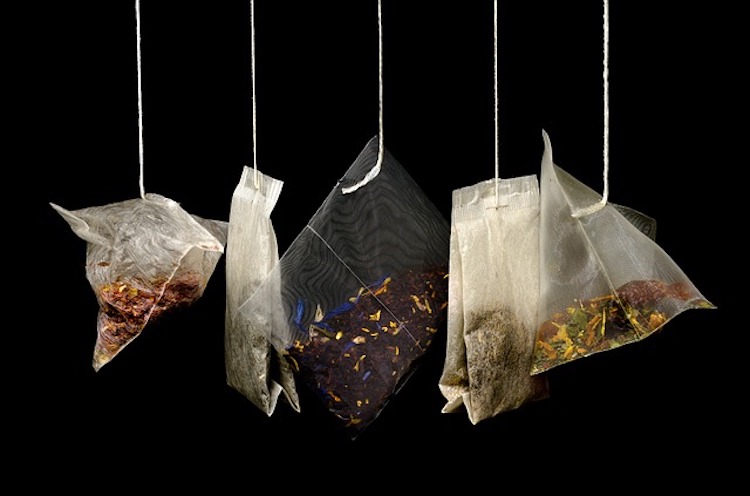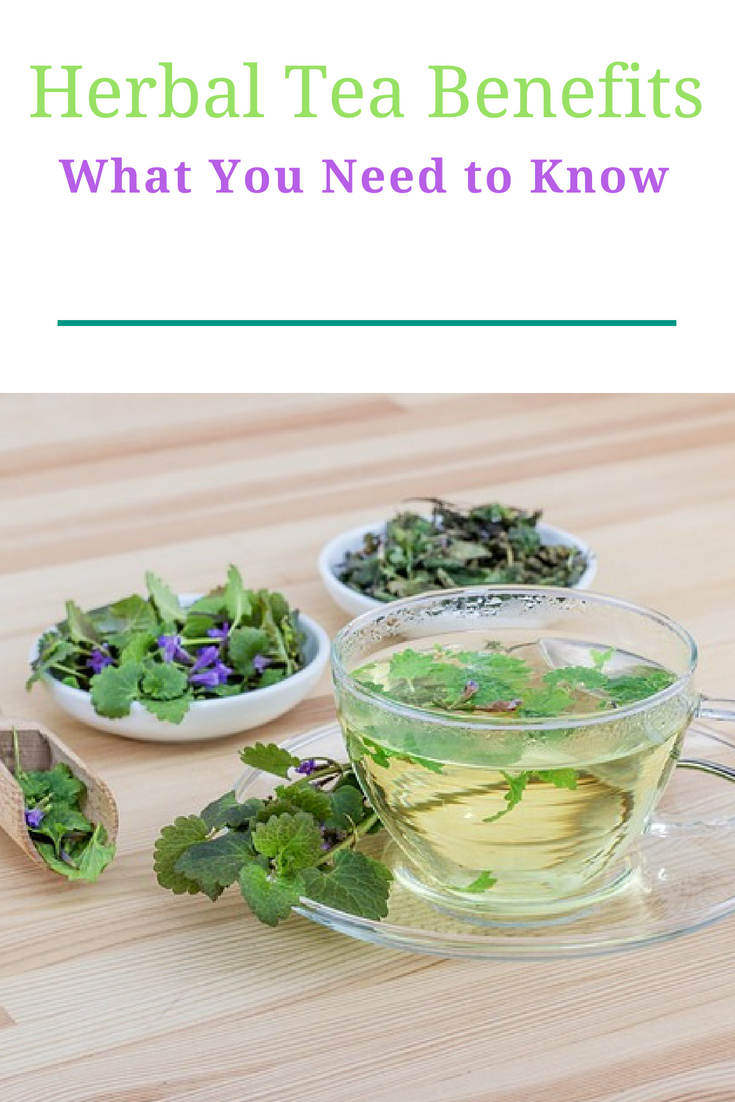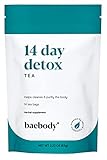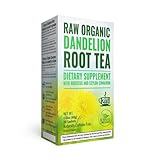
Herbal tea, or tisane as it’s technically known, is a different experience from what you probably have sitting in your cupboard. Black teas, green teas, white, yellow, oolong — it’s all a different ballgame from what you will get through an herbal.
That said, the preparation methods are similar. That is, you’re infusing the “cocktail” of ingredients into hot water. It’s up to you whether you drink it that way or allow it to cool off in the fridge overnight.
Where herbal teas differ from the more common varieties is in their ingredients. Most teas are made from plant leaves. Tisane comes from herbs, spices, and other parts of the plant.
In the following article, we will dig a little further into this idea, discussing some of the most popular types of tea as well as some of the key benefits and possible side effects. With that said, let’s start sipping!
What Are the Most Popular Types of Herbal Tea?
We literally can’t go into every type of herbal tea in a short 3,000-word space. That’s because there are dozens and dozens of them, and we really want you to know what herbal teas can do for you (and in some cases to you), so we will just stick with the most popular ones at this point.
Here is a quick primer.
- Anise: made from the seeds or leaves of the aniseed plant, a vegetation grown in the eastern Mediterranean region and parts of southwest Asia.
- Cannabis: made from the cannabis plant, which needs no elaboration.
- Chamomile: plant belongs to the Asteraceae family.
- Dandelion: often referred to as “dandelion coffee,” this is made from the root of the dandelion plant.
- Echinacea: comes from the daisy family.
- Ginger root: made from the rhizome of the ginger plant.
- Kava root: made from a plant common to the Pacific Islands.
- Osmanthus: comes from osmanthus fragrans, a plant common in China, Thailand, and the Himalayans. Also referred to as sweet olive, tea olive, and fragrant olive.
- Patchouli: made from a species in the Lamiaceae family, referred to as “deadnettle” or “mint.”
- Peppermint: originates from parts of Europe and the Middle East, also part of the Lamiaceae family.
- Rooibos: member of the Fabaceae family, commonly found in South Africa and referred to as “red tea.”
- Rosehip: sometimes referred to as rose hip, rose haw, and rose hep, comes from, you guessed it, the rose plant. In tea form, it’s usually combined with hibiscus.
- Thyme: usually derived from the Thymus vulgaris variety, comes from the Lamiaceae family.
- Turmeric: part of the ginger family, native to India and southeast Asia.
- Valerian root: comes from Europe and Asia.
If we left a favorite off the list, please excuse and feel free to tell us about it in the comments section way at the bottom of this article. We always love learning about the intricacies of new teas.
Herbal Tea Nutritional Information
The calories in most herbal teas are less than five. No fats, no cholesterol, no protein, very little sodium, and only about a half-gram of carbohydrates.
In short, it is an excellent drink for those of you who need some kind of oral fixation in between meals. As with straight black coffee, it’s not going to derail your diet or induce sugar cravings.
It also lays claim to significantly more positive health claims, which we will be covering at length in the next section.
How Do Herbal Teas Affect Your Health
Depending on whom you’re speaking to, it’s anywhere from a hugely beneficial super-drink to a “tread-careful” drink with many attached concerns. That said, there is anecdotal and scientific evidence as to the positives for many of the plants used in the creation of herbal teas. This section will touch briefly on each one and provide a reference list for the teas that do the most good in each area.
Herbal Tea and Digestion
Dandelion, rosehip, hibiscus, hawthorn, and juniper teas are most commonly associated with digestive health, but they’re not the only ones. Their primary functions are as diuretics, making them helpful in overcoming constipation.
Additionally, chamomile, cinnamon, ginger, and peppermint teas help ease the effects of diarrhea, nausea, and irritable bowel syndrome.
For Easy Reference
- Dandelion
- Rosehip
- Hibiscus
- Hawthorn
- Juniper
- Chamomile
- Cinnamon
- Ginger
- Peppermint
Sleep Patterns
Irregular neurotransmitter levels often are the cause of poor sleep or trouble going to sleep. Thankfully, many herbal teas have balancing effects on this.
Some of the most commonly associated teas to help one catch a full night’s sleep include chamomile, kava root, lavender, and valerian teas. Patchouli also is worth a shot as it has sedative effects for controlling anxiety.
For Easy Reference
- Chamomile
- Kava root
- Lavender
- Valerian
Effects on Hydration and Fluid Retention
According to the Mayo Clinic, dehydration occurs when an individual uses or loses more fluids than they’re taking in. Adults who are dehydrated may experience extreme thirst, dark-colored urine, a lack of frequency in urination, dizziness, fatigue, and confusion. In extreme cases, it can be fatal.
Chamomile tea is considered a good rehydrating agent as well as elderflower, which assists by lowering the body temperature and reducing the amount of fluid loss that one experiences.
Willow bark also has cooling properties, and it can reduce the symptoms related to dizziness and confusion. All can be consumed as herbal teas.
Fluid retention may not seem like it’s as serious of an issue, but according to WebMD, it can, in its extreme form, lead to conditions such as cirrhosis of the liver, heart and kidney failure, premenstrual syndrome, and preeclampsia, a dangerous condition found in the later stages of pregnancy.
The best herbal tea solutions for dealing with fluid retention include dandelion and horsetail.
For Easy Reference
- Chamomile
- Elderflower
- Willow bark
- Dandelion
- Horsetail
Women’s Health Issues
It’s not easy being a woman, with each stage of life carrying a unique array of surprises men never get to experience — things like menopause; menstruation (and cramps, bloating, and gas related to it); pregnancy; uterine fibroids; and nursing. Like men, women may also experience fertility issues.
Herbal teas may not be the cure-all for these conditions, but they can certainly help deal with some of the symptoms and effects. For starters, let’s take pregnancy as this and nursing are the two situations where you really have to be careful about what you’re putting into your body.
Before going any further, we should say this: absolutely, 100 percent, check with your doctor before consuming any herbal tea while in this state, and certainly limit the intake.
You don’t want to drink too much or it could cause a host of health complications for you and your baby.
That said, dandelion, ginger root, and peppermint tea can have positive effects. Ginger, for instance, helps to ease some of the nausea you’ll experience during the pregnancy.
Dandelion tea eases fluid retention and also has been linked to improving fertility. Peppermint helps to reduce nausea, vomiting, cramps, and bloating.
Uterine fibroids, which are muscled tumors that can grow in the wall of your uterus, are seldom malignant. However, they can cause heavy bleeding during menstruation as well as more intense pains.
Chasteberry and Burdick root teas, while less commonly known, may be helpful in shrinking the size and, subsequently, the symptoms.
Chamomile, cinnamon, fennel, ginger, and peppermint, also are effective for hormonal imbalances, making them great choices for menstrual and menopausal symptoms.
For Easy Reference
- Dandelion
- Ginger root
- Peppermint
- Chasteberry
- Burdick root
- Chamomile
- Cinnamon
- Fennel
Weight Loss
We would argue that virtually any type of tea is good for weight loss, for the simple fact, it gives you an extremely low-calorie activity you can do in between meals. For people who turn to food to deal with anxiety and stress, this is particularly helpful.
As far as actual properties are concerned, though, we recommend rooibos because, unlike a lot of other herbals, it regulates the fat-storage hormones, which can play a role in hunger cravings and insulin resistance.
And since many people do eat out of stress and anxiety, consider dandelion, hibiscus, juniper, and hawthorn teas as well.
For Easy Reference
- Rooibos
- Dandelion
- Hibiscus
- Juniper
- Hawthorn
Sinus and Allergy Problems
Perhaps the most common reason people turn to herbal teas — hot ones in particular — is to deal with the symptoms that come with sinus and allergy issues.
Things like hay fever, or fever in general, along with coughing, runny noses, and sore throats, can be due to sickness, infection, or allergic responses to changing seasons.
Whatever the cause, there are a host of teas that will help. Rooibos is good at helping the body to overcome allergic responses. Osmanthus addresses coughing and congestion.
Chamomile, turmeric, and slippery elm are effective for sore throats. Lastly, ginger and peppermint teas are natural antihistamines designed to fight off inflammation and ease the effects typical of overactive allergy seasons.
For Easy Reference
- Rooibos
- Osmanthus
- Chamomile
- Turmeric
- Slippery elm
- Ginger
- Peppermint
Energy
Green tea usually gets top billing when it comes to boosting energy levels in the body, but it’s technically not a tisane as it comes directly from leaf, not an herb, so we’ll set this one aside for another day.
When it comes to actual herbals, rosehip is a good one because it supports the body’s immune system and serves to detoxify the body from contaminants that drag down energy levels. Patchouli, dandelion, and kava root produce similar effects.
Diabetes
Diabetes is a condition in which the body struggles to properly use insulin, a hormone that helps regulate blood-sugar levels. According to the American Diabetes Association, diabetes puts you at risk for a variety of potentially fatal health conditions through poor circulation, ketoacidosis, kidney disease, high blood pressure, stroke, gastroparesis, and HHNS.
Herbal teas that assist with insulin and other diabetes-related issues include bilberry (read huckleberry) tea and sage tea.
For Easy Reference
- Bilberry
- Sage
Arthritis
Arthritis is more than just joint pain. That’s certainly part of it, but it goes beyond that to (potentially) full-body inflammation, particularly around the joints.
This causes the individual to experience an almost constant state of pain that can affect the quality of life and lead to more serious health issues.
Herbal teas that target arthritis also tend to work for other inflammatory conditions like sunburns and skin irritation. They include chamomile, peppermint, ginger, turmeric, and eucalyptus teas.
For Easy Reference
- Chamomile
- Eucalyptus
- Ginger
- Peppermint
- Turmeric
Blood Pressure
According to the Centers for Disease Control, high blood pressure affects approximately 32 percent of the U.S., or 75 million Americans. While it may not seem like the sky is falling when you’re first diagnosed, it can lead to highly dangerous outcomes, including heart attacks, strokes, aneurysms, dementia, memory problems, and poor metabolism.
If you’ve been diagnosed, don’t put off seeking help. Addressing the issues now can prevent worsening conditions and a decline in your overall quality of life.
While an herbal tea is not going to cure HBP, it can help ease some of the flare-ups. Valerian root, dandelion, and rooibos tea are the common go-tos when it comes to lowering your numbers.
For Easy Reference
- Dandelion
- Rooibos
- Valerian root
Skin and Hair Problems
The American Academy of Dermatology notes that as many as 80 million people suffer from some form of skin or hair condition in the US alone. Some of these range from the mild (50 million for acne) to the potentially fatal (3.4 million annual diagnoses, skin cancer).
Herbal teas with large amounts of anti-inflammatory properties, in general, can be helpful, but three, in particular, are effective in dealing with an array of skin irritations: chamomile, echinacea, and rooibos.
Rooibos especially possesses anti-aging properties that make it a go-to in the skin and hair care sectors.
For Easy Reference
- Chamomile
- Echinacea
- Rooibos
Kidney Disease and UTIs
According to the National Kidney Foundation, urinary tract infections (UTIs) are responsible for 10 million doctor visits annually, with 20 percent of all women experiencing one in their lifetimes.
Furthermore, kidney disease accounts for another 14 percent of the population. This entails damage to the kidneys that prevent them from filtering blood as they should.
Lastly, 13 percent of all men and 7 percent of all women will experience a kidney stone in their lifetimes, with the chance of reoccurrence greater than 50 percent.
Given your kidneys’ and urinary tract’s roles in removing waste from the body, it’s important they’re in proper working order.
Once again, an herbal tea isn’t going to “cure” any of these conditions, but certain ones — like dandelion, hibiscus, hawthorn, and juniper teas — will help by acting as diuretics.
For Easy Reference
- Dandelion
- Hibiscus
- Hawthorn
- Juniper
Cancer
Free radicals and oxidative stress have been linked to the development of many chronic diseases, including some of the major killers like cancer. And few diseases are scarier than cancer due to both the frequency of occurrence and the likelihood of mortality.
The National Cancer Institute reports that 439.2 men and women per 100,000 (about 1.405 million) are diagnosed annually with 163.5 per 100,000 (over 500,000) succumbing to it.
If that rate were to hold, it would mean 50 million Americans will die of cancer over the next century. Given population growth, that number is likely to be much, much higher.
How can herbal teas help? The short answer is antioxidants. Many herbal teas contain them, but the ones with effective quantities for cancer patients include rooibos, peppermint, thyme, and nettle teas.
For Easy Reference
- Nettle
- Peppermint
- Rooibos
- Thyme
Nerves and Anxiety
The World Health Organization (WHO) observes that more than 350 million people suffer from depression or anxiety. While that’s a relatively small percentage of the world’s estimated 7.6 billion population, the real number is likely much higher.
That’s because many people who suffer from depression or anxiety are hesitant to seek the help they need. Therefore, a lot of cases run the risk of going undiagnosed.
Now admittedly, the spectrum is pretty broad. Many suffer from mild depression, and while it can affect your overall happiness levels, it’s not threat-level-critical. These are the people who can perhaps benefit the most from herbal teas. More serious cases will require seeking professional help.
But if you’re looking for something to take the edge off, you’ll want to focus your efforts on five herbal teas in particular: cannabis, chamomile, kava root, lavender, and valerian root. Each works to balance neurotransmitter levels.
For Easy Reference
- Cannabis
- Chamomile
- Kava root
- Lavender
- Valerian root
Possible Side Effects
Now that we’ve covered the good stuff, we will pay heed to some of the potential side effects. There may be some rehash here, and given the many teas out there, as well as the fact no two people are the same, outcomes will vary.
Heart Issues
While teas like chamomile can be great relaxing agents, they also can have adverse effects when certain conditions are present. For instance, they can increase the likelihood of internal bleeding if a patient possesses a coronary artery stent.
In this scenario, you’d definitely want to speak to your doctor before using. Also, if you’re taking a blood thinner, you’ll want to use caution with natural thinning agents like ginseng tea.
Likewise, St. John’s Wort is an otherwise beneficial tea that can counteract heart medications. Whatever you do, proceed with caution.
Diarrhea and Nausea
Going back to the start of this article, some teas are natural diuretics. These include dandelion, rosehip, hibiscus, hawthorn, and juniper. It’s great they can get you to go when you need to, but they’re probably the last thing you need when you’re going to be camped out in the bathroom anyway.
A better alternative is to stick with some of the teas like cinnamon that are known for easing the effects of diarrhea. Also, it’s important to stay hydrated until the effects of diarrhea subside as dehydration is usually your biggest health risk in this scenario.
Gas, Constipation, and Bloating
Peppermint and spearmint teas have been known to aggravate indigestion and heartburn despite their otherwise positive health benefits. If you’re already experiencing these conditions, consider switching to something like dandelion or juniper.
Miscarriage
Some of the teas you’ll wish to avoid during pregnancy — and this is, in part, because they can cause uterine contractions, premature deliveries, and, in some cases, miscarriages — include St. John’s Wort (also a heart medication offender), Don Quai, ginseng, yarrow, pennyroyal, licorice root, and ephedra.
Talk to your doctor about teas to avoid in addition to the ones you can have if you’re planning on having a baby.
Headaches
Herbal teas that contain caffeine are largely to blame for reports of headaches from tea consumption. Switch to a non-caffeinated, and make sure the one you choose doesn’t interfere with any other health conditions and/or medications you may be taking.
Kidney Stones
Sometimes herbal teas can cause kidney stones, but they’re nowhere near the offenders of their black tea counterpart. According to WebMD, it’s all about oxalate content, and tests for herbal teas ranged from “not detected” to 3 milligrams per gram of tea while black tea contained 4.68 to 5.11 milligrams per gram of tea.
Restlessness and Anxiety
Sometimes the caffeine content contained in an herbal tea isn’t immediately obvious from the packaging. If you have any questions about whether an herbal contains caffeine, do a quick Google search.
Whenever people complain about herbal tea making them restless or anxious, this is usually the cause.

In Closing
We hope this article has drawn the proper distinctions between herbal tea and its black, green, white, and oolong counterparts. While all teas come with their fair share of health benefits, there are special circumstances where you need to exercise caution before consumption, particularly when you are taking medication for a health condition the tea’s contents might interfere with.
Always talk to a doctor before bringing an herbal tea into your life if you’re pregnant, nursing, or have had potentially serious health issues. Now, which herbal teas are your favorites? Sound off in the comments section below.




Leave a Reply